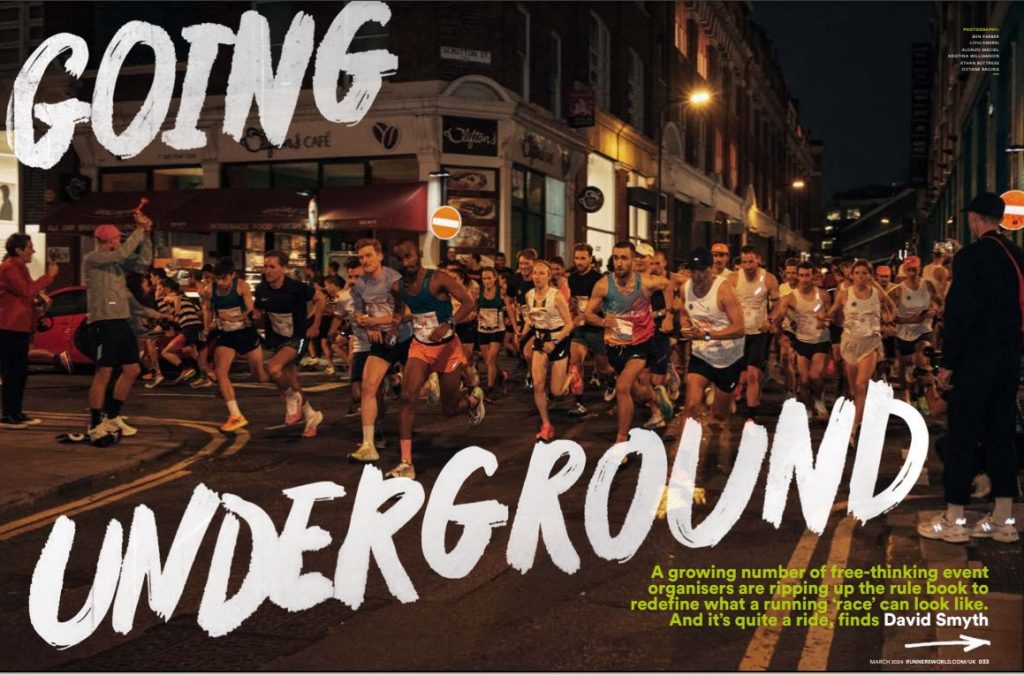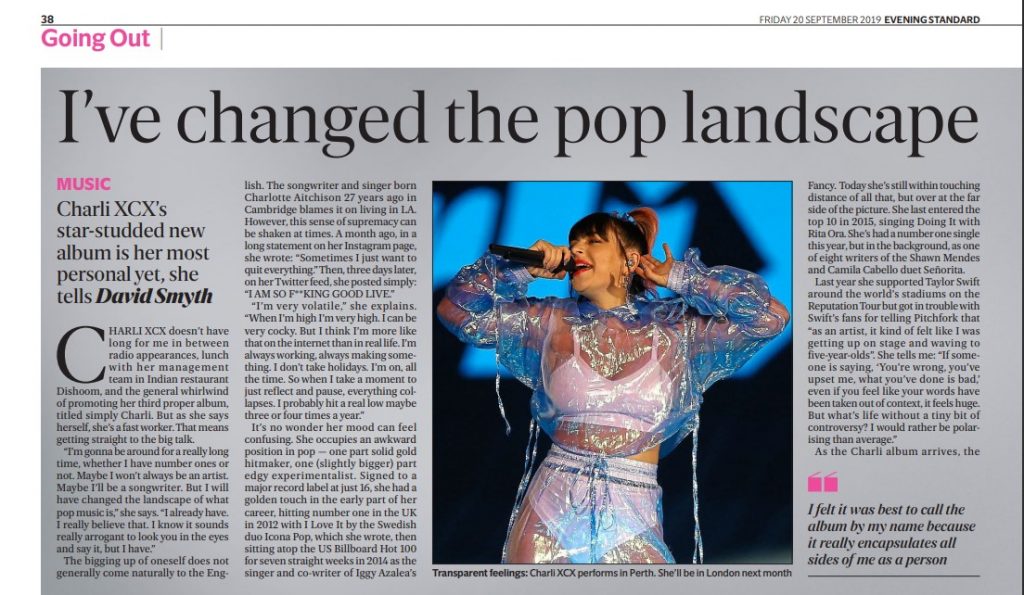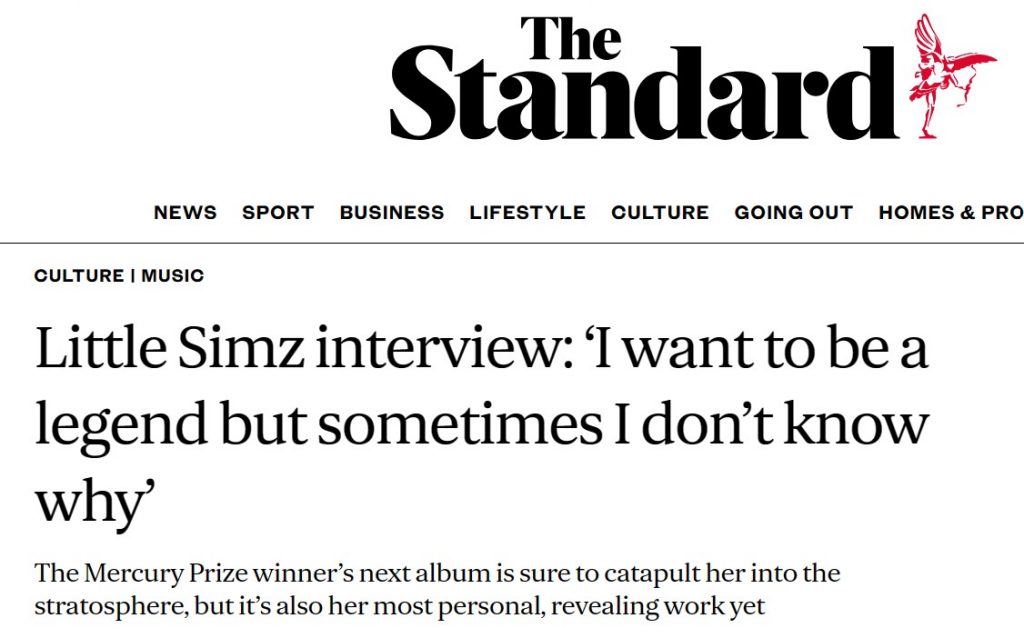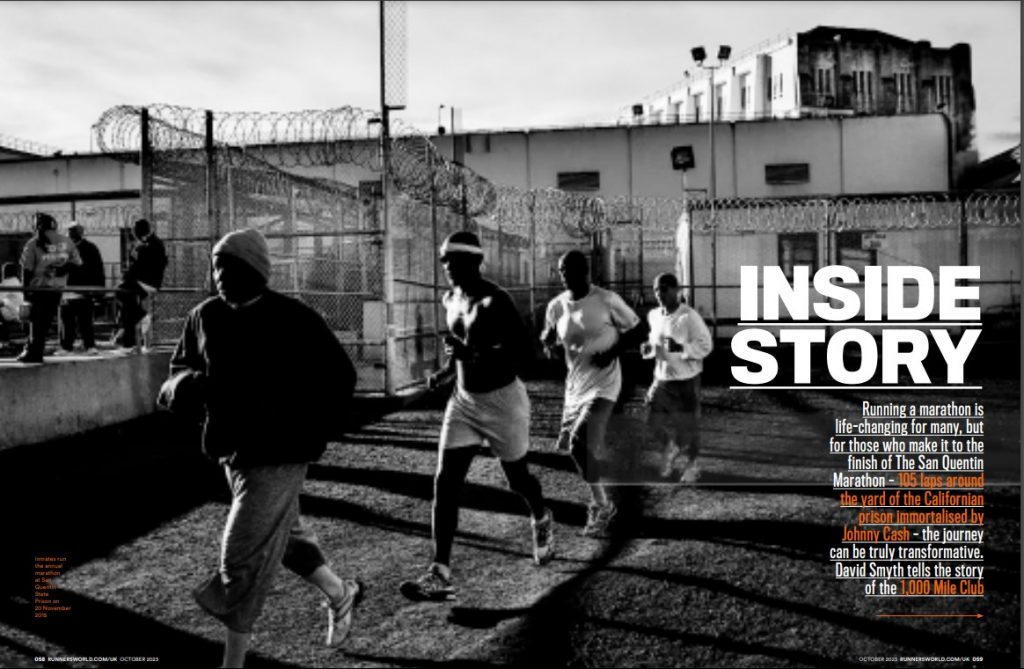“Our main hope here, the barefooted lightweight wonder, Bruce Tulloh,” the Pathé news reporter says in delightfully plummy tones, over black-and-white shots of the British athlete’s victory in the 1962 European Championship 5,000 metres in Belgrade. “That frail form conceals a lot of strength.”
Tulloh, at under 5’8, close to 8 stone and gently spoken, could have been a person that was overlooked through his life, which ended in April when he died aged 82. But there was nothing modest about his achievements. There’s something fantastically English about interview footage with him from 1969, midway through his record-breaking 64-day run from Los Angeles to New York. As he stands on the side of a sun-scorched highway in a bright yellow T-shirt provided by his sponsor, Schweppes, tiny next to an overbearing American TV reporter, he is asked what the hardest part of the epic run has been so far.
“Probably the desert,” he replies. “It’s pretty hot.”
Those who knew him best recall a man who inspired those around him without shouting. “He had a very quiet manner but still managed to carry people with him,” says Mike Gratton, the 1983 London Marathon winner who worked with Tulloh on training camps across the world for around 20 years. “He had a knack of keeping people’s attention.”
Martin Hyman became friends with Tulloh when they were both studying at Southampton University in the late-1950s. The pair subsequently joined Portsmouth AC, and led it on the way to becoming one of the country’s dominant clubs. “It was a friendship, not a rivalry,” remembers the 84-year-old today. “I’m sure that when we came together we were much bigger than the sum of our parts.”
The man who would become known in the press as “Barefoot Bruce” first tried running in competition without shoes at Southampton University’s sports day in 1959, where he won the three-mile race on a cinder track. But the style was far from fashionable then, and didn’t generally appeal to others. “I paced him to qualify for the GB team on a track that was very dry grass, like sandpaper,” says Hyman. “I ran in bare feet that day and lost most of the skin off my soles, but at least he got in the team!”
Tulloh wasn’t consistently barefoot either. He set the British record for two miles, and ran a sub-four minute mile, both in spikes, and of course wore running shoes to traverse America. But in the places where he ran again and again – on the beach near his home at Instow in North Devon, and on the Wedgwood playing field at the far end of Marlborough College, where for over two decades he taught Biology and trained young athletes – he would shed his shoes and pay close attention to his times.
“Even relatively recently, in the last two years of his life, he’d say to me, ‘I went up to Wedgwood, took the shoes off and did a personal worst.’ And he had probably been doing regular repetitions on the beach at Instow from about 1955,” says his son, Clive Tulloh. He, along with his younger twin sisters Jojo and Katherine, ran to a high standard in his youth. The girls won junior national titles and Clive, who like his sisters was coached by his father while he attended Marlborough, went on to study at Loughborough University and won the British Universities 10,000m in 1988.
Clive, who subsequently eased off on running to become a television producer, attributes some of his motivation to being the baby who prevented his father from competing in the 1964 Tokyo Olympics, by giving him German measles. “It is probably one of the reasons I wanted to be a runner. I thought, ‘Oh God, I’ve got to win an Olympic medal for Dad!’”
Having felt that the altitude was too high for a successful crack at the Mexico Olympics four years later, Bruce searched for more interesting challenges. “He just loved having an adventure,” says his son. He set out to beat the record for running across America, with Sue, his lifelong support, and Clive, who celebrated his seventh birthday during the trip, following with a caravan.
This was not the high-spec set-up you might expect today. “I think his naivety in some ways helped him through it,” says Clive. “He would walk the last three or four miles every day to ease his legs out, sometimes having a small cigar as he walked. He’d sit outside the caravan afterwards and have a couple of beers.”
Just as he was ahead of the game with his bare feet, he was an early talent spotter too. In 1971, he spent two weeks with the Tarahumara Indians to write about them for the Observer newspaper, for which he had also published articles about his US trip. They would finally find fame for their extraordinary abilities in Christopher McDougall’s 2009 book, Born to Run.
But it is as a coach that Tulloh is most fondly remembered. Richard Nerurkar came into his life just as his children were giving up running. Known as a star runner at Oxford University, Tulloh invited him to take up a post teaching languages at Marlborough when he had finished his studies, and coached him for the next decade. Nerurkar ran in the finals of the 10,000m at the 1991 World Championships and the 1992 Olympics in Barcelona.
“He gave me the confidence that I could compete at the highest level. He gave me the determination,” says Nerurkar. “But you’d have to know Bruce to know how he does that. He was very understated but he had this infectious enthusiasm for running.”
More recently he was coaching Jenny Spink, meeting either near her home in Bristol or his in Marlborough, or in the middle at a Little Chef if it was for a discussion rather than a running session. He was still getting Sue to type up emailed replies to Spink’s updates less than a fortnight before he died.
“What I loved about his style is that he and Sue adopted their athletes as part of the family,” recalls Spink, who qualified for the 2016 World Half Marathon Championships in Cardiff under Tulloh’s care. “Sue would cook lunch, they’d get toys out for my son. I’ve not had that before.”
After an injury last year, Spink is now targeting the Valencia Marathon. “There is someone guiding me a bit now, but I’m just letting things settle really,” she says. “No one can replace Bruce.”












